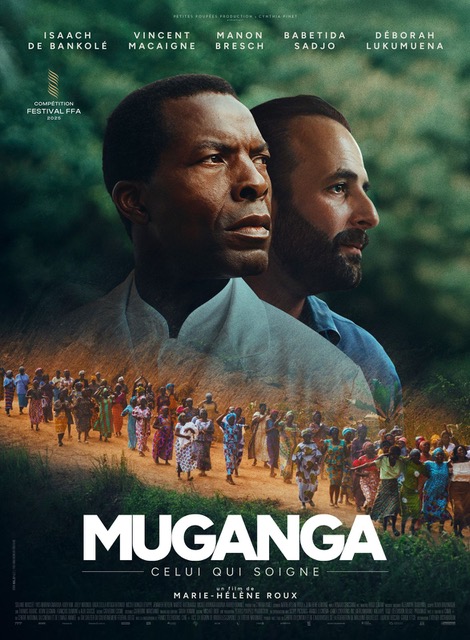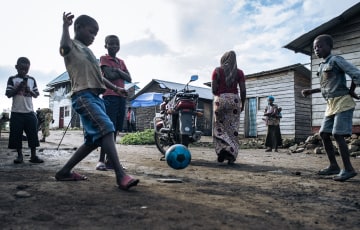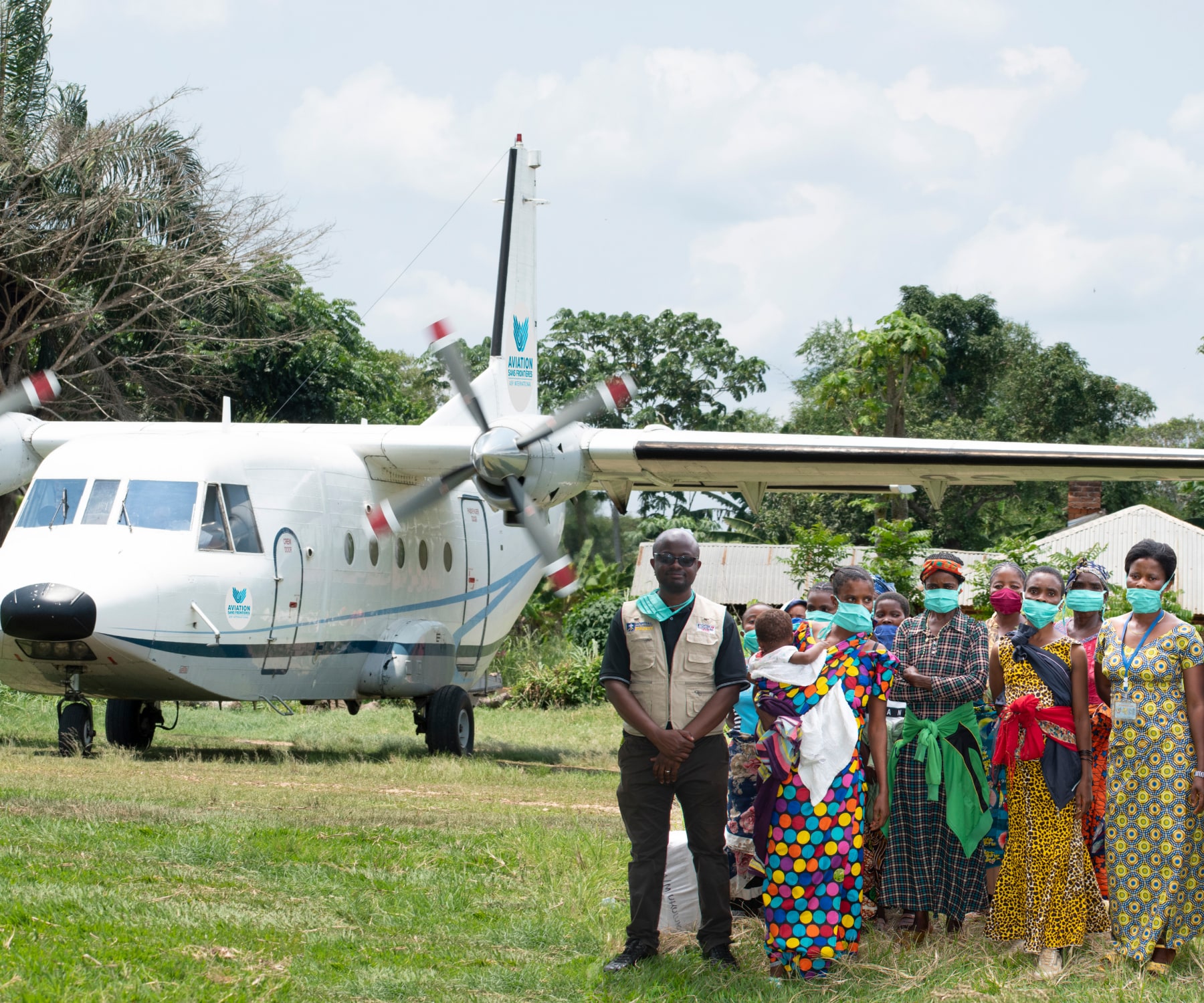
Holistic Care
Mobile clinics: Healthcare for remote communities
Many survivors live in remote, hard-to-reach villages that lack health care services. Panzi’s mobile teams travel by plane, motorbike, and foot to reach these survivors to deliver the world-class care they deserve—wherever they are.
Panzi Foundation uses mobile clinics to bring its holistic care model to remote and underserved communities across the Democratic Republic of Congo (DRC). These outreach efforts are crucial for reaching survivors of sexual violence who face barriers to accessing care at the foundation’s four One Stop Centers (OSCs). By deploying medical, psychosocial and legal support teams to rural areas, Panzi ensures that even the most isolated populations can receive life-saving care and support.
Program Services
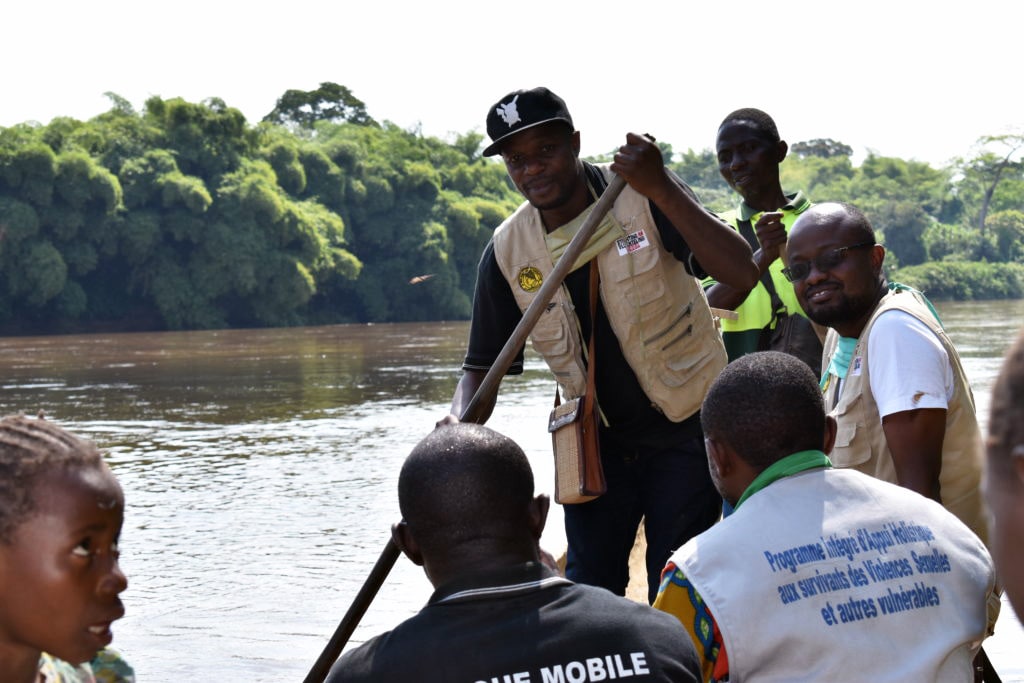
Holistic
Panzi Foundation’s Holistic Mobile Clinics travel to villages around the country, though mostly within South Kivu province, bringing medical services, psychological support, and legal assistance directly to communities.
A typical Holistic Mobile Clinic team includes a doctor, two nurses, a psychologist, and two psychosocial assistants. These teams provide essential services, including administering Post-Exposure Prophylaxis (PEP) kits to prevent HIV and treating gynecological issues, such as fistulas and other trauma resulting from sexual violence. In 2022, Panzi’s Holistic Mobile Clinics reached 5,520 beneficiaries, including 4,513 women and girls, and 1,007 men and boys in more than 25 health zones.

Emergency
In cases of mass rape or urgent needs, Panzi operates Emergency Mobile Clinics. These clinics are deployed immediately to areas where mass rape has occurred, providing survivors with medical care, psychological support, and legal evidence collection. The goal of these missions is to respond swiftly to large-scale crises, helping survivors receive urgent care while documenting cases for potential legal action.
Emergency Mobile clinics ensure that survivors in areas experiencing high levels of violence are not left without critical support.
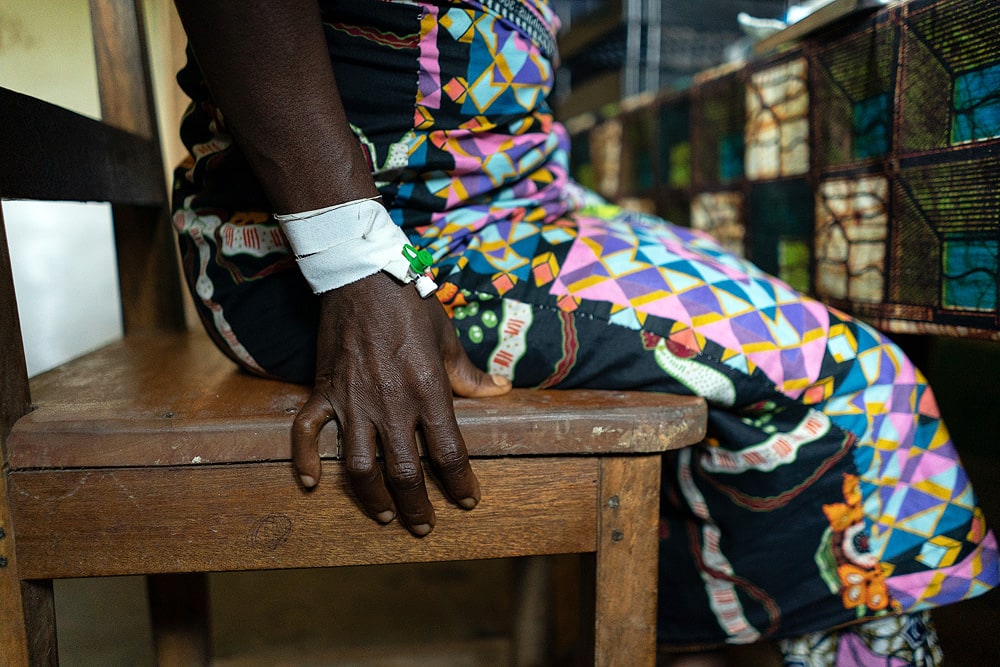
Surgical
Surgical Mobile Clinics, another important outreach method, bring specialized surgical care to survivors in hard-to-reach areas. These clinics, often conducted in partnership with Aviation Sans Frontières or Mission Aviation Fellowship, deliver fistula and prolapse repair surgeries to women in remote areas where road access is difficult or unsafe.
For example, in 2021, Panzi surgical teams traveled to the Shabunda territory, where they repaired 33 cases of uterine prolapse and transported more complex cases to Panzi Hospital for further treatment. These clinics play a vital role in addressing the long-term physical effects of sexual violence in areas with limited access to specialized care.
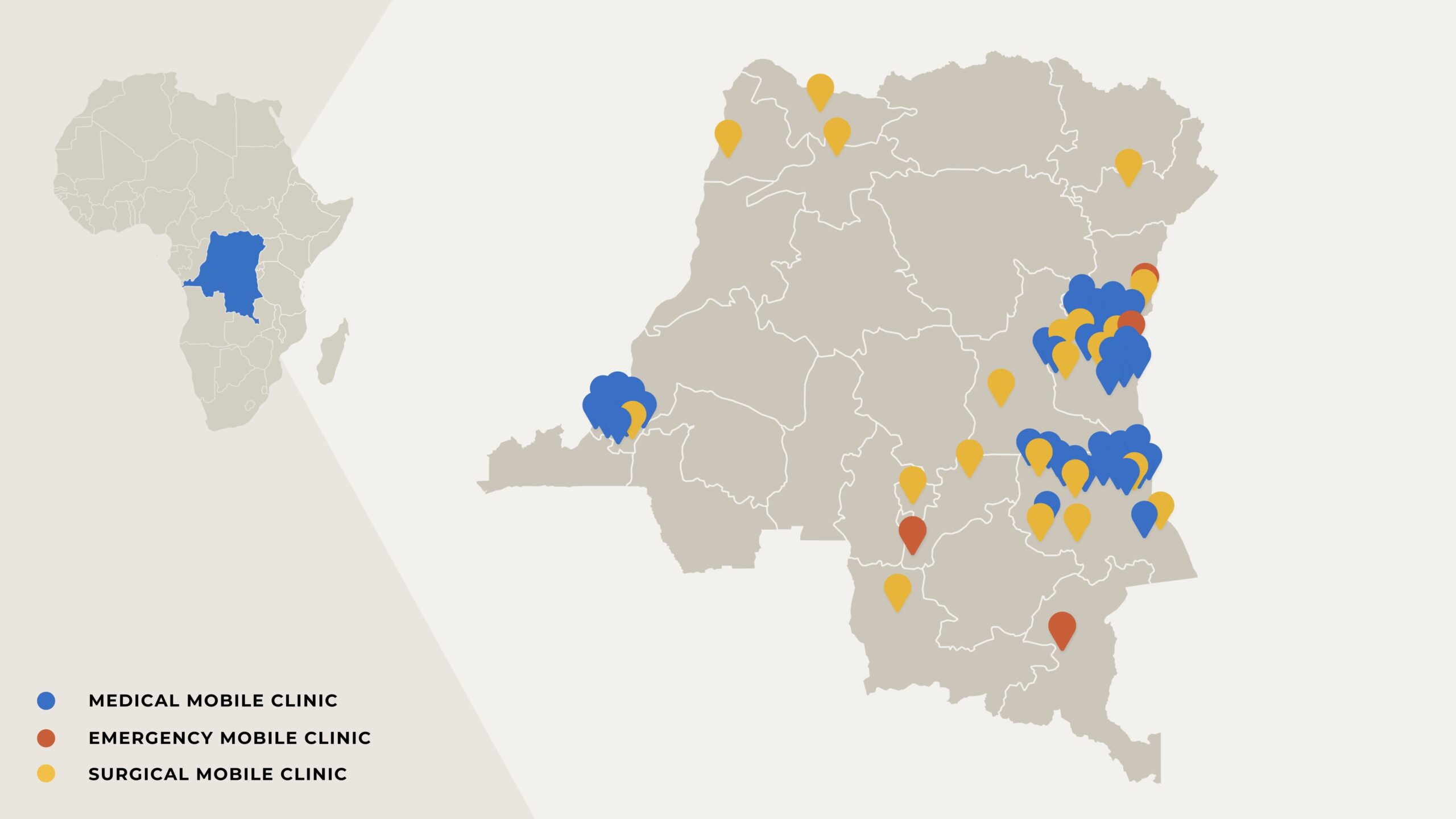
Reaching survivors at the last mile
The DRC faces immense challenges due to its sparse and deteriorating road infrastructure, making many regions inaccessible and without adequate health facilities. Panzi Foundation deploys teams of doctors, psychosocial assistants, and legal advocates to provide life-saving care and document the crimes. Our teams courageously trek through militia-controlled, dense forests—often at great personal risk—bringing critical support to survivors where no other humanitarian response exists.
To destroy women is to destroy society.
Dr. Denis Mukwege
Increasing access to quality health care to at-risk health zones throughout the DRC
Through mobile clinics, rapid response missions, and surgical outreach efforts, Panzi remains committed to ensuring that all survivors of sexual violence, no matter where they are, receive the care they need to heal and rebuild their lives.
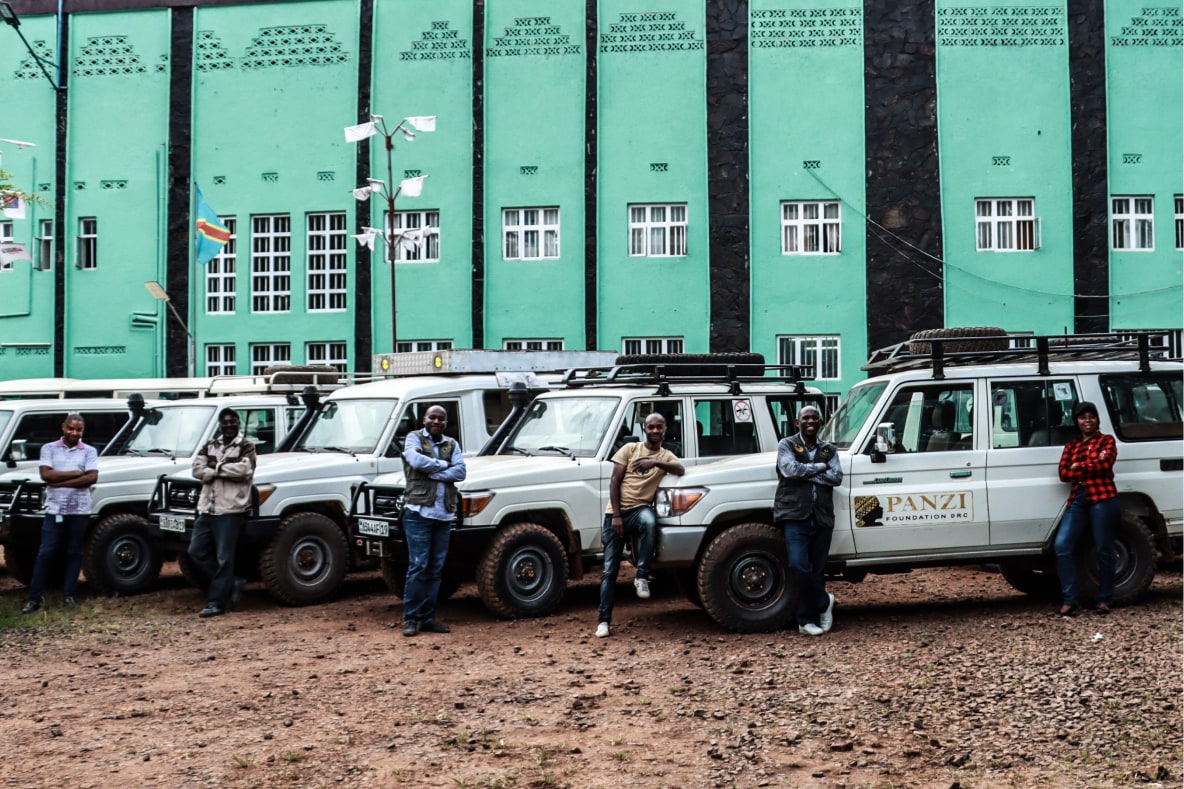
clinics in the past 5 years (from 2019-2023)
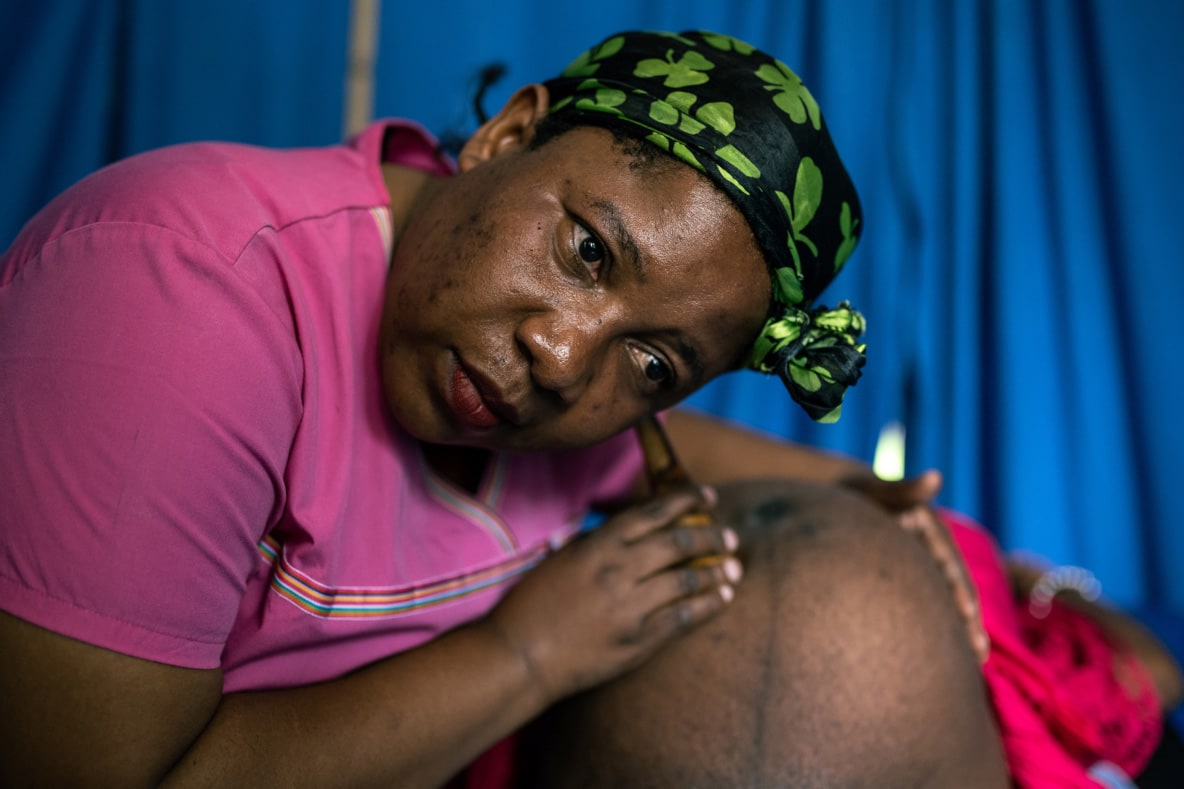
people provided with care – including more than 2000 surgical interventions
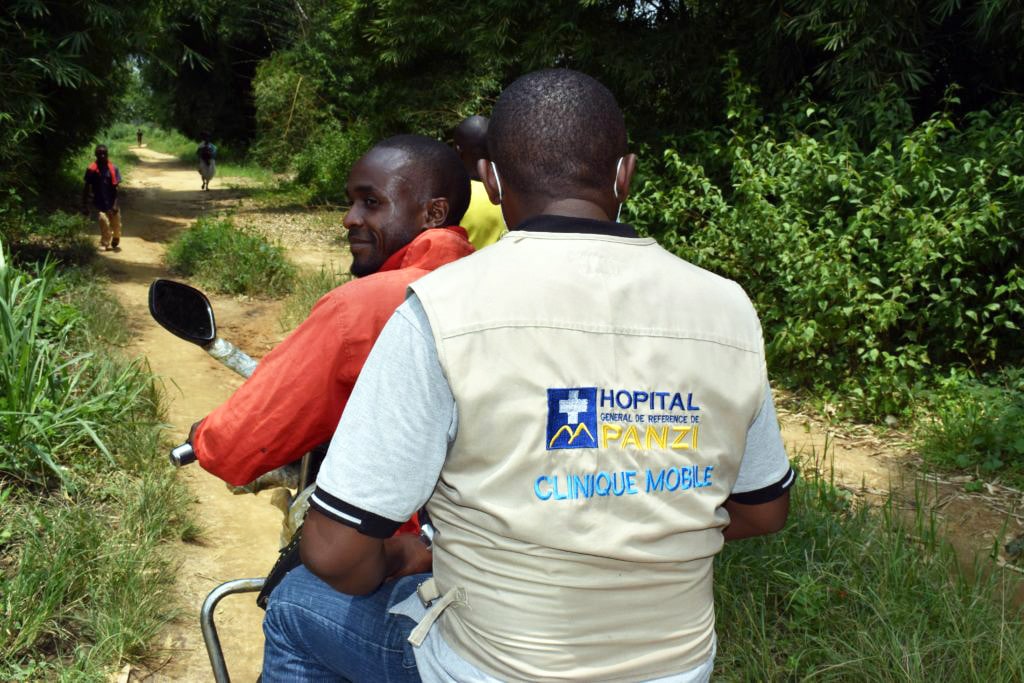
miles traveled by our team in the past 5 years via car, boat, plane, motorcycle, and even on foot!
Expanding the Reach of Holistic Care
In addition to mobile clinics, Panzi Foundation supports a network of dozens of partner OSCs across the DRC, ensuring that more communities benefit from their four-pillar holistic care model. This approach allows Panzi to extend its reach far beyond the walls of its primary OSCs, providing comprehensive services—including medical, psychological, legal, and socioeconomic reintegration support—to survivors in even the most remote areas.
Stand up. Stand strong. Stand with us.
